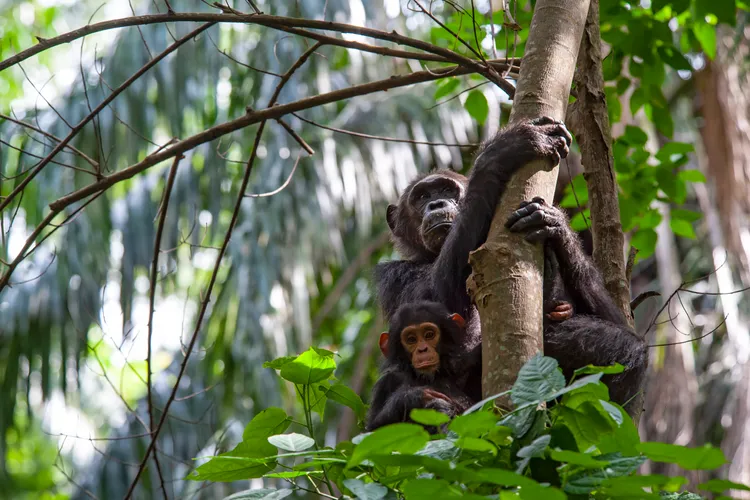New analysis challenges the concept that people are the one species of primate through which females expertise the menopause – a lack of capability to bear younger that happens lengthy earlier than the top of their pure lifespan.
Till now, menopause had solely been noticed in people, orcas and 4 different species of toothed whale.
Earlier efforts have discovered little proof for the phenomenon amongst primates. However the newest analysis reveals that females in a chimpanzee inhabitants in Ngogo, Uganda, expertise a lack of reproductive operate at in regards to the age of fifty, accompanied by hormonal adjustments much like these seen in menopausal girls.
Revealed within the journal Science, the analysis demonstrates that chimps nonetheless have about 20 per cent of their grownup lives forward of them when menopause happens. Amongst girls, this determine is nearer to 40 per cent.
The usual clarification for menopause is that amongst extremely social species reminiscent of people and orcas, an older, extra skilled feminine can higher serve her genetic pursuits by aiding her offspring, or grandchildren, relatively than having extra offspring herself.
The usual clarification for menopause is that amongst extremely social species reminiscent of people and orcas, an older, extra skilled feminine can higher serve her genetic pursuits by aiding her offspring, or grandchildren, relatively than having extra offspring herself. Put up-menopausal orcas, for instance, are essential for educating their descendents how finest to seek out and catch meals.
Aged feminine chimps, although, appear to be far much less attentive grandmothers than people or orcas. “In chimps, we’ve obtained the evolution of post-reproductive lifespan however little or no grandmothering behaviour,” says Kevin Langergraber of Arizona State College, one of many authors of the research. He means that the findings elevate doubts over whether or not the helpful-grandmother thought even applies to people and orcas.
“It’s apparent that human grandmothers do assist their kids and grandchildren,” he says. “However the query is whether or not these advantages are bigger than they’d be if females simply carried on reproducing themselves. Our paper reveals that the grandmother speculation won’t be obligatory for the evolution of post-reproductive lifespans.”
Through which case, what drove the evolution of chimpanzee menopause? “We don’t know,” says Langergraber. “Some analysis shakes issues up and makes you query what you thought was the proper reply.”
This text by Stuart Blackman was first revealed by Uncover Wildlife on 16 January 2024. Lead Picture: The analysis demonstrates that chimps nonetheless have about 20 per cent of their grownup lives forward of them when menopause happens. Amongst girls, this determine is nearer to 40 per cent. Credit score: Getty.
What you are able to do
Assist to save lots of wildlife by donating as little as $1 – It solely takes a minute.

